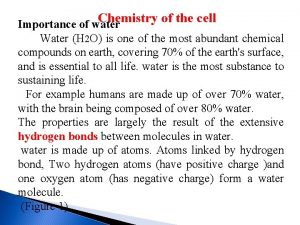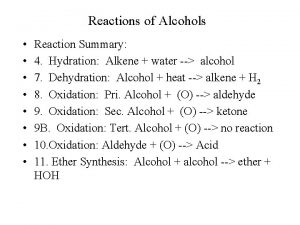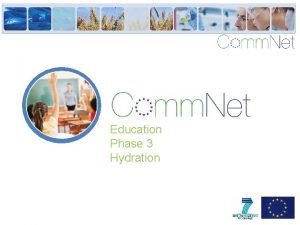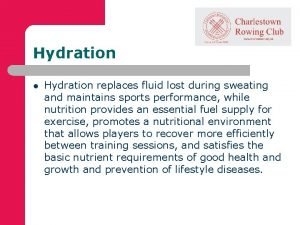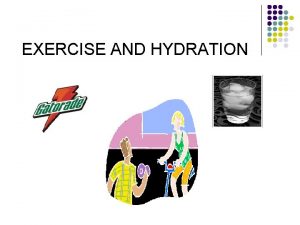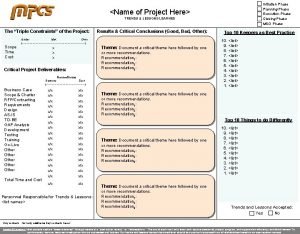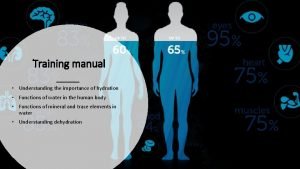Education Phase 4 Hydration The importance of water







- Slides: 7

Education Phase 4 Hydration

The importance of water Our body is nearly two-thirds water, so drinking enough fluid to stay hydrated is very important. Water is essential for life and it is very important to get the right amount of fluid to be healthy.

Water in the diet Water is the major component of body fluid and has many functions in the body: • it acts as a lubricant for joints and eyes; • it is the main component of saliva; • it helps get rid of waste; • it helps regulate body temperature. The body loses water all the time, when we go to the toilet, from sweat and also evaporation from skin. If we do not consume enough water, we become dehydrated.

Sources of water Water is provided by food and drinks. It has been estimated that roughly 20% of water consumed is from food (e. g. soups, yogurt, fruit and vegetables), while 80% is from drinks (water, milk and fruit juice).

How much water do we need? The amount of water and other fluids that we need to drink each day varies from person to person. European recommendations suggest 1. 6 L of fluid per day for women (about 8 200 ml glasses) and 2 L of fluid per day for men (about 10 200 ml glasses), more when the weather is hot or when we are active.

Dehydration Water is the most abundant constituent of the human body and regular fluid intake is essential for our bodies to function properly. Dehydration can impair cognitive, physiological and performance responses. Symptoms of dehydration include headache and fatigue.

Which population groups may be at risk of dehydration? • Older adults may have a weaker sense of thirst. If necessary they should be helped and encouraged to drink regularly. • Children need plenty of fluid and they should be encouraged to drink regularly, especially if they are very active. • People who are very physically active should drink enough fluid to replace the water loss through sweating.
